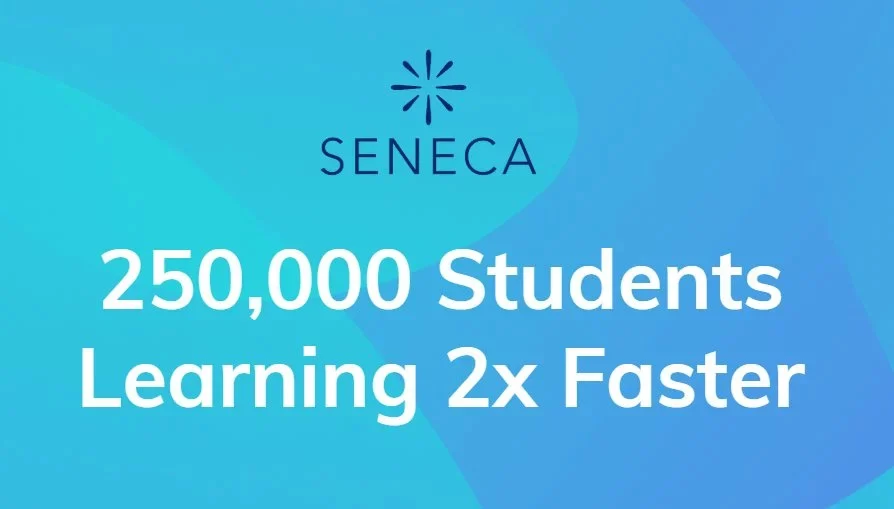Studying and revision can be tough, especially when it feels like the weight of the world is on your shoulders. The pressure to perform well, meet expectations, and balance other commitments can quickly take a toll on your mental health and confidence. We understand that it can be challenging to stay motivated and focused during this period, and that’s why we’re here to help. In this blog post, we’ll share some tips and tricks to help you maintain your motivation, improve your focus, and boost your confidence during the GCSE period. Whether you’re struggling to stay on track or feeling overwhelmed by the workload, we’ve got your back.
Understand the Motivation
Motivation is the driving force that propels us towards our goals. It’s what keeps us focused and determined to achieve our desired outcomes, even when faced with obstacles and setbacks. Without motivation, it can be difficult to stay on track and maintain the energy and effort required to succeed.
There are two main types of motivation: intrinsic and extrinsic. Intrinsic motivation comes from within, and is driven by personal interest, curiosity, and enjoyment of the task at hand. Extrinsic motivation, on the other hand, is driven by external rewards or consequences, such as grades, praise, or avoiding punishment.
While both types of motivation can be effective in driving performance, research has shown that intrinsic motivation is often more sustainable and leads to greater long-term success. This is because it comes from a place of personal satisfaction and enjoyment, rather than simply trying to meet external expectations.
When it comes to studying and revision, motivation plays a critical role in determining how much effort and time you devote to these activities. If you’re motivated and engaged in the material, you’re more likely to retain information and perform well on assessments. Conversely, if you’re lacking in motivation, you may struggle to concentrate, procrastinate, and ultimately underperform.
Therefore, it’s important to understand your own motivations and find ways to tap into them when studying and revising. Whether it’s finding personal relevance in the material, setting clear goals and rewards, or seeking support from peers and teachers, there are many strategies you can use to increase your motivation and achieve success in your GCSEs.
Tips for Maintaining Motivation and Focus
Studying and revision can be overwhelming, especially when faced with large amounts of information to learn and remember. However, there are several strategies you can use to maintain your motivation and focus throughout the process.
✅ Break down tasks into smaller, manageable chunks
This can make studying and revision seem less daunting and help you focus on one task at a time. For example, break down a large topic into smaller subtopics, and then focus on learning one subtopic at a time.
✅ Create a study schedule and stick to it
Scheduling your study time can help you stay organised and avoid procrastination. Make sure to schedule regular breaks and include time for self-care activities, such as exercise or hobbies. Check out how to create the perfect GCSE revision routine.
✅ Find a study space that works for you
Different environments can affect your ability to concentrate and retain information. Experiment with different study spaces to find the one that works best for you. This could be a quiet room at home, a library, or a coffee shop.
✅ Use positive affirmations and visualisation techniques
Positive self-talk can help improve your confidence and motivation. Before and during your study sessions, repeat positive affirmations to yourself, such as “I am capable of learning this material” or “I am making progress every day.” Visualisation techniques can also help you imagine yourself succeeding and achieving your goals.
✅ Take breaks and engage in self-care activities
Taking regular breaks can help you avoid burnout and improve your ability to concentrate. During your breaks, engage in self-care activities, such as stretching, taking a walk outside, or listening to music. This can help refresh your mind and improve your mood, making it easier to return to your studies.
By incorporating these tips into your study routine, you can maintain your motivation and focus, and achieve success in your GCSEs.
How to Deal with Distractions
Distractions can be a major challenge when studying and revising for your GCSEs. With the constant pull of social media, phone notifications, and other distractions, it can be difficult to stay focused and motivated. Here are some strategies for minimizing distractions and staying on track:
✅ Identify common distractions during studying and revision
Recognising the things that distract you is the first step in minimizing them. Common distractions during study time may include social media, phone notifications, email, and other apps or websites.
✅ Turn off notifications
One of the easiest ways to reduce distractions is to turn off notifications on your phone and computer. This can help you stay focused on the task at hand and avoid being pulled away by notifications.
✅ Use website blockers
There are many website blocking tools available that can help you avoid distractions on the internet. These tools can block certain websites, such as social media or news sites, during your study sessions.
✅ Create a distraction-free study space
If you’re easily distracted by noise or other people, try creating a quiet, distraction-free study space. This could be a designated room in your home, or a quiet area of the library.
✅ Take breaks
Taking regular breaks can help you stay focused and avoid burnout. During your breaks, step away from your study materials and engage in a relaxing activity, such as stretching, meditation, or listening to music.
By minimising distractions, you can improve your focus and productivity during your study sessions, and increase your chances of success in your GCSEs. Remember, staying focused and motivated takes practice, so be patient and persistent in implementing these strategies.
Mindset and Self-Talk

Your mindset and self-talk can have a significant impact on your motivation and confidence while studying for your GCSEs. Here are some key points to keep in mind:
A growth mindset is the belief that your abilities and intelligence can be developed over time through hard work and dedication. This is in contrast to a fixed mindset, which is the belief that your abilities and intelligence are predetermined and cannot be changed. Research has shown that a growth mindset can lead to increased motivation, better grades, and greater overall success.
Negative self-talk can be a major barrier to success, leading to feelings of self-doubt, anxiety, and decreased motivation. Examples of negative self-talk include “I’m not smart enough to do this,” “I’m never going to be able to learn all of this material,” and “I always mess up.”
Positive self-talk and mindset shifts can help you overcome negative thoughts and maintain motivation and confidence. Examples of positive self-talk include “I am capable of learning this material,” “I am making progress every day,” and “I am confident in my abilities.” A growth mindset shift might involve reframing a negative thought into a positive one, such as “I haven’t mastered this yet, but with practice, I will get better.”
By adopting a growth mindset and using positive self-talk, you can increase your motivation and confidence, overcome obstacles, and achieve success in your GCSEs. Remember, your mindset and self-talk are within your control, so be intentional about cultivating a positive and growth-oriented mindset.
Conclusion
Studying and revising for your GCSEs can be challenging, but with the right mindset and strategies, you can overcome obstacles and achieve success.
Remember, studying is not just about getting good grades, it’s about learning and growing as a person. Embrace the process and don’t be too hard on yourself if you don’t achieve perfection. Take care of yourself and find a study routine that works for you.
And if you need additional support or motivation, consider joining the Edumentors community on Discord or hiring a private tutor. There you can connect with other students, receive helpful tips and advice, and stay motivated throughout your studies.
With the right mindset and support, you can achieve great things. So go out there, study hard, and achieve your goals!








